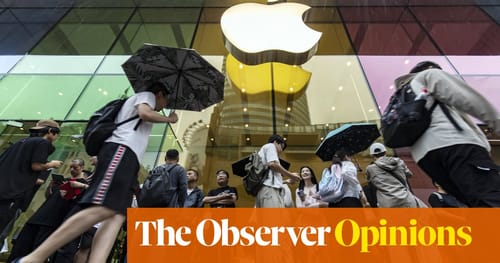
My new iPhone symbolises stagnation, not innovation – and a similar fate awaits AI | John Naughton
The Guardian | Technology - Saturday, July 27, 2024Development of ChatGPT and its ilk will plateau, just like it did for smartphones, and then what are we left with? More ho-hum consumer tech
I bought an iPhone 15 the other day to replace my five-year-old iPhone 11. The phone is powered by the new A17 Pro chip and has a terabyte of data storage and accordingly was eye-wateringly expensive. I had, of course, finely honed rationales for splashing out on such a scale. I’ve always had a policy of writing only about kit that I buy with my own money (no freebies from tech companies), for example. The fancy A17 processor is needed to run the new “AI” stuff that Apple is promising to launch soon; the phone has a significantly better camera than my old handset had – which matters (to me) because my Substack blog goes out three times a week and I provide a new photograph for each edition; and, finally, a friend whose ancient iPhone is on its last legs might appreciate an iPhone 11 in good nick.
But these are rationalisations rather than solid justifications. The truth is that my old iPhone was fine for the job. Sure, it would need a new battery in time, but apart from that it had years more life in it. And if you take a cold, detached look at the evolution of the iPhone product line, what you see from the 2010 iPhone 4 onwards is really just a sequence of steady incremental improvements. What was so special about that model? Mostly this: it had a front-facing camera, which opened up the world of selfies, video chat, social media and all the other accoutrements of our networked world. But from then on, it was just incremental changes and price rises all the way.
Continue reading...